Chatbots in 2025: Customer Service Revolution or Risk?
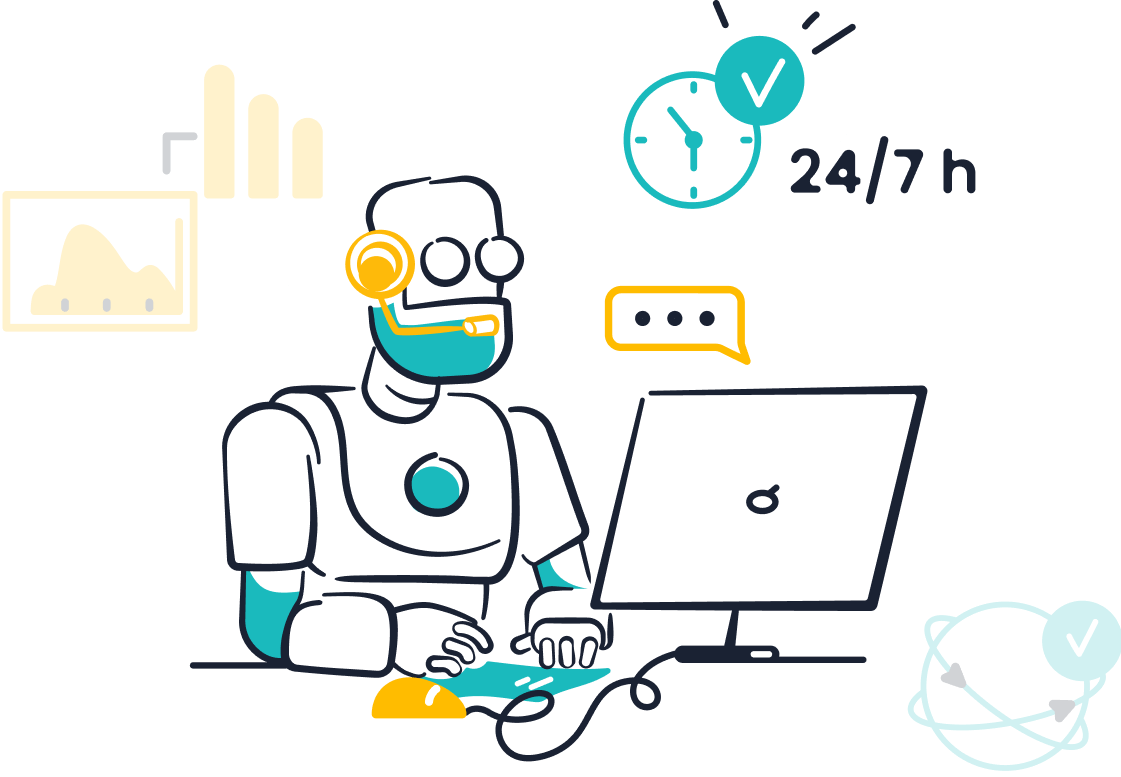
Imagine a world where your questions are answered instantly, no matter the time or day. That’s the promise of chatbots customer service. By 2025, these AI-powered tools could revolutionize how businesses engage with you. Did you know 72% of business leaders believe AI delivers better service than humans? Platforms like Sobot are already demonstrating this potential, enhancing customer experiences across various industries. With chatbots customer service, waiting in line might just become a thing of the past.
The Good: Enhancing Customer Experience with Chatbots

24/7 Availability for Seamless Support
Imagine needing help at midnight or during a holiday. With chatbots, you don’t have to wait for business hours. These AI-powered tools are available around the clock, offering instant responses to your questions. Whether you’re troubleshooting a product or seeking information, chatbots provide seamless customer support whenever you need it.
This constant availability transforms customer experience by eliminating delays. Chatbots act as self-service channels, allowing you to resolve issues without relying on human agents. For businesses, this means faster, more convenient, and cost-effective solutions. Platforms like Sobot’s AI Chatbot take this a step further by integrating omnichannel support, ensuring you can connect through your preferred platform—be it WhatsApp, SMS, or online chat.
Cost Savings and Operational Efficiency
Chatbots don’t just save time; they save money too. Businesses that invest in chatbot technology often see significant cost reductions. For example:
- A company spent $30,000 on chatbot implementation and gained $90,000 annually, including $45,000 in labor savings and $25,000 from increased sales.
- Unobravo reported a 70% drop in inbound tickets after deploying chatbots, showcasing their operational effectiveness.
- In 2024, a chatbot performed the work equivalent to 700 full-time agents, boosting profits by $40 million.
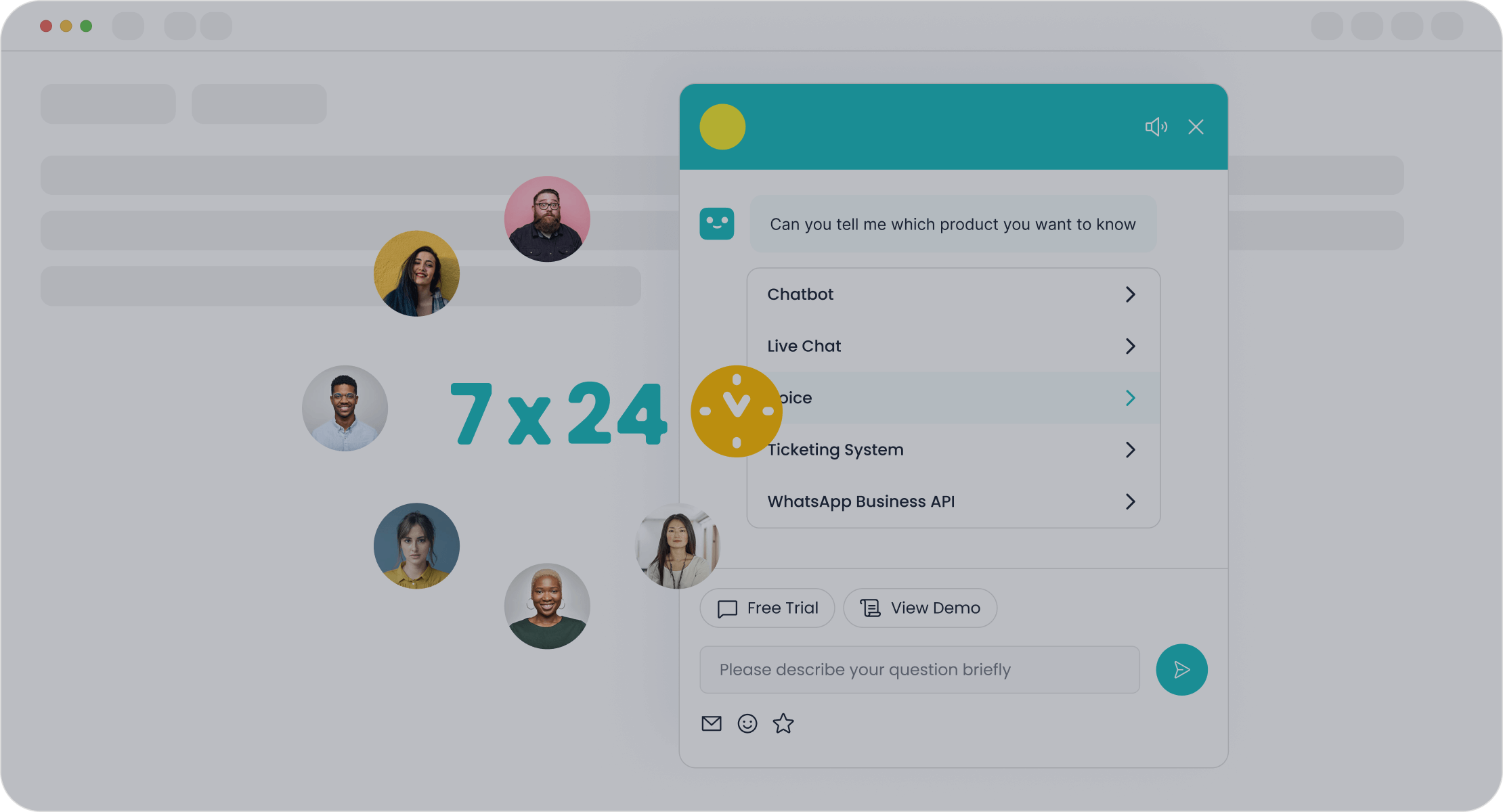
Sobot’s AI Chatbot enhances efficiency by autonomously handling regular queries, improving productivity by 70%. It also reduces service costs by up to 50%, making it a smart investment for businesses looking to streamline operations.
Personalization Powered by AI
Ever felt frustrated by generic responses? AI-powered chatbots change that by delivering personalized interactions. They use machine learning to detect your emotions, intent, and sentiment, tailoring their replies to meet your needs. This creates a more human-like engagement, fostering empathetic connections and improving customer satisfaction.

Sobot’s chatbot excels in personalization. It uses predictive analytics to anticipate your needs and provides real-time insights for intuitive help. Whether it’s guiding you through a purchase or directing you to a human agent for complex issues, it ensures your experience feels seamless and personal.
Scalability for High-Volume Interactions
Handling thousands of inquiries at once might sound impossible, but chatbots make it manageable. They scale effortlessly to accommodate high volumes of customer interactions, ensuring no one gets left waiting. Statistics show chatbots can increase conversion rates by 23%, resolve customer issues 18% faster, and achieve a 71% success rate in addressing inquiries.
Sobot’s AI Chatbot is built for scalability. Its multilingual capabilities and omnichannel support allow businesses to engage with customers globally, even during peak times. This scalability ensures consistent service quality, no matter how many people need assistance.
Sobot Chatbot: Revolutionizing Customer Service
Sobot’s AI Chatbot isn’t just a tool; it’s a game-changer. It combines emotional intelligence, operational efficiency, and advanced AI to redefine customer support. Here’s what makes it stand out:
- Increased Customer Satisfaction: Emotionally intelligent systems improve satisfaction scores by 15-20%.
- Efficiency in Query Resolution: Issues are resolved 30% faster than traditional methods.
- Operational Cost Savings: Businesses save 20-25% on support operations by automating inquiries.

With features like 24/7 availability, multilingual support, and no-coding-required setup, Sobot’s chatbot empowers businesses to deliver exceptional customer experiences while cutting costs. It’s the future of customer engagement, available today.
The Bad: Challenges in Chatbots Customer Service
Limited Emotional Intelligence
Chatbots are great at answering questions quickly, but they often struggle with emotional understanding. Imagine reaching out for help during a frustrating situation, only to receive a generic response that doesn’t address your feelings. That’s where chatbots fall short. They lack the ability to interpret sarcasm, frustration, or even humor, which can leave you feeling unheard.
| Challenge | Impact |
|---|---|
| Lack of emotional understanding | Leads to dissatisfaction in emotionally charged situations |
| Misinterpreting tone or sarcasm | Results in generic responses that fail to meet customer expectations |
| Absence of empathy | Increases customer churn due to unmet emotional needs |
While some chatbots attempt to mimic empathy, they often miss the mark. This gap can make interactions feel robotic, reducing the overall customer experience.
Struggles with Complex Queries
Chatbots shine when handling simple questions, but they stumble with complex problems. For example, if you’re troubleshooting a technical issue or asking for a tailored solution, a chatbot might not have the depth to help.
- Many chatbots lack critical thinking skills, so they can’t analyze intricate problems.
- 60% of consumers worry about the accuracy of chatbot responses.
- 46% believe businesses use chatbots to avoid offering human support.
Sobot’s AI Chatbot addresses this by integrating a robust knowledge base and AI copilots to assist with more challenging queries. However, even the best systems can struggle with highly nuanced issues, making human agents essential for certain situations.
Frustration from Scripted Interactions
Have you ever felt like a chatbot wasn’t really “listening” to you? That’s because many rely on pre-written scripts. These interactions can feel rigid and unhelpful, especially when your question doesn’t fit the script.
- Studies show that free-text interactions often lack flexibility, frustrating users.
- Social-oriented chatbots, which mimic human warmth, tend to improve satisfaction during service failures.
Sobot’s chatbot minimizes this frustration by offering customizable workflows and real-time intent recognition. This ensures conversations feel more natural, even when things go off-script.
Over-Automation Risks
Automation is a double-edged sword. While it improves efficiency, over-automation can harm customer trust. If you’ve ever felt like a company was avoiding human interaction, you’re not alone.
- 60% of people believe humans understand their needs better than chatbots.
- Poorly implemented automation can lead to service failures, damaging the customer experience.
Sobot balances automation with human support, ensuring you get the best of both worlds. By integrating chatbots with live agents, businesses can avoid the pitfalls of over-automation while still reaping its benefits.
The Ugly: Risks and Ethical Concerns
Data Privacy and Security Challenges
When you interact with chatbots, your personal data often gets collected. This includes sensitive information like your name, email, and even payment details. While this helps chatbots provide better service, it also raises serious privacy concerns. Companies store massive amounts of data, and if their systems aren’t secure, your information could be exposed.
Here’s the problem:
- Limited control over how your data is used can make you feel uneasy.
- Insecure databases increase the risk of identity theft.
- Some companies misuse data for targeted ads, which feels invasive.
For industries like healthcare and finance, where sensitive data is common, these risks are even higher. Businesses must follow strict regulations like GDPR to protect your privacy. Sobot’s AI solutions prioritize data encryption and compliance, ensuring your information stays safe while enhancing your customer experience.
Job Displacement in Customer Service Roles
Automation is changing the job market, and chatbots are a big part of that shift. While they improve efficiency, they also replace human workers. In 2023 alone, AI contributed to 3,900 job losses in the U.S., with customer service roles being hit hard.
This trend isn’t slowing down. Many workers worry about losing their jobs to automation. Chatbots handle repetitive tasks faster and cheaper than humans, making them attractive to businesses. However, this creates challenges for displaced workers who need to find new opportunities.
Sobot’s approach balances automation with human support. By combining chatbots with live agents, businesses can reduce costs without eliminating the human touch. This ensures a smoother transition for workers while maintaining high-quality service.
Bias in AI Algorithms
Chatbots aren’t perfect. They learn from the data they’re trained on, and if that data is biased, their responses can be too. You might remember the Microsoft Tay incident, where a chatbot adopted offensive language after interacting with biased users.
Bias in AI raises ethical concerns. Chatbots can unintentionally favor certain groups or exclude others. Even OpenAI’s CEO admitted that bias is a challenge for AI systems like ChatGPT. This highlights the need for careful monitoring and diverse training data.
Sobot’s AI solutions focus on fairness and inclusivity. By using advanced algorithms and continuous optimization, they aim to reduce bias and deliver accurate, unbiased responses to customers worldwide.
Negative Impact on Customer Trust
Trust is everything in customer service. If you don’t feel confident about how your data is handled, it’s hard to trust the company. Studies show that privacy concerns directly affect how much you trust chatbots.
Many users don’t know what happens to their personal information after interacting with a chatbot. This lack of transparency creates doubt and reduces trust. When trust is lost, your overall experience suffers.
Sobot addresses this by being transparent about data usage and prioritizing security. Their chatbots customer service solutions are designed to build trust while delivering efficient and personalized support.
The Evolution of Chatbots by 2025
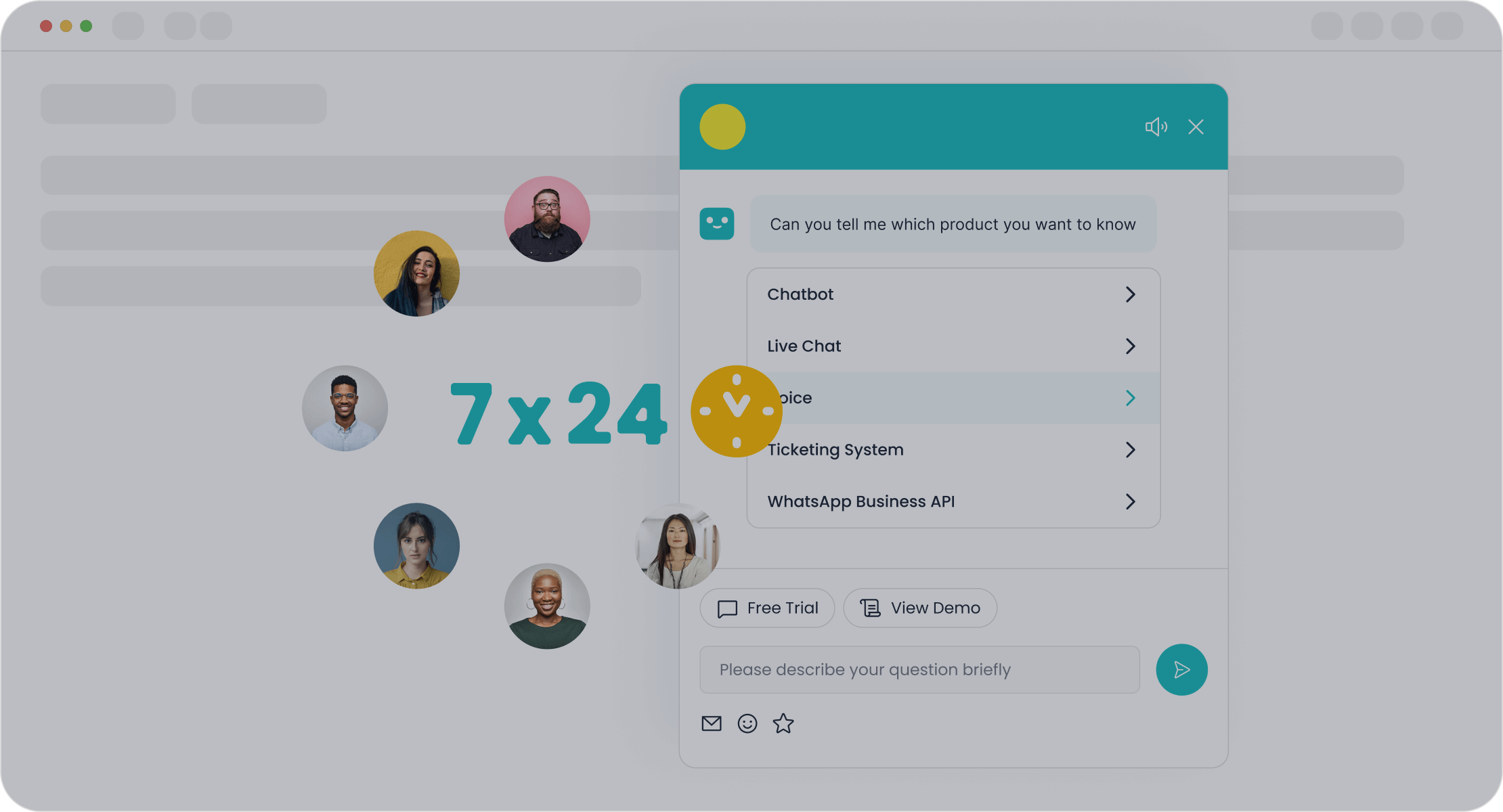
Advancements in Natural Language Processing (NLP)
By 2025, chatbots will feel less like machines and more like conversational partners. Thanks to advancements in Natural Language Processing (NLP), these tools will understand context better, making conversations flow naturally. Imagine asking a chatbot a complex question with multiple intents, and it responds accurately without missing a beat.
Here’s how NLP is transforming chatbot effectiveness:
- Chatbots now understand slang and regional dialects, making them accessible to diverse audiences.
- They can handle complex queries, discerning multiple intents in a single sentence.
- Conversational AI learns from interactions, improving responses over time.
These improvements mean you’ll experience smoother, more intuitive interactions, whether you’re using online chat or messaging apps. Sobot’s AI Chatbot leverages cutting-edge NLP to deliver personalized and accurate responses, ensuring your customer journey feels effortless.
Integration with Omnichannel Customer Support
Imagine reaching out to a brand through WhatsApp, email, or social media, and getting consistent, seamless support every time. That’s the power of omnichannel integration. By 2025, chatbots will act as the glue that connects all your favorite communication channels, making your customer experience smoother than ever.
| Evidence Description | Source |
|---|---|
| 69% of consumers prefer using chatbots for speedy communication with brands. | Tidio Study |
| AI chatbots improve customer experience and business efficiency on omnichannel platforms. | XCALLY |
| Chatbots act like digital assistants, enhancing engagement and personalization. | Gleantap |
| Companies analyze customer behavior in real-time, offering tailored recommendations. | Gleantap |
Sobot’s omnichannel solutions unify customer interactions across platforms like WhatsApp and SMS, ensuring you get consistent support wherever you are.
Emotionally Intelligent Chatbots
What if a chatbot could sense your frustration and respond with empathy? That’s the promise of emotionally intelligent chatbots. By 2025, these AI tools will detect emotional distress and provide empathetic responses, making interactions feel more human.
Here’s what researchers are discovering:
- Chatbots can offer emotional support, especially for users struggling to communicate their feelings.
- Eastern users express emotions more frequently than Western users when interacting with chatbots.
- Users are more likely to share vulnerable emotions with chatbots than on social media.
These advancements will redefine customer engagement, fostering trust and loyalty. Sobot’s AI Chatbot incorporates emotion detection to enhance personalization, ensuring your experience feels genuine and supportive.
Sobot AI Chatbot: Leading the Way in Innovation
Sobot isn’t just keeping up with the evolution of chatbots—it’s driving it. By integrating AI chatbots, live chat, and voice services, Sobot transforms customer interactions into seamless experiences. Its AI-driven personalization ensures you get tailored support, whether you’re troubleshooting a product or exploring new services.
Sobot’s innovations don’t stop at efficiency. They focus on customer retention and loyalty by delivering consistent, empathetic, and personalized support across all touchpoints. With features like multilingual capabilities and omnichannel integration, Sobot’s chatbot ensures your customer journey is smooth, engaging, and effective.
Revolution or Risk? The Future of Chatbots Customer Service
Scenarios Where Chatbots Will Revolutionize Service
Chatbots are already transforming how businesses interact with you, and by 2025, their potential will only grow. Imagine reaching out to customer support through WhatsApp and receiving instant, accurate help. That’s not just a dream—it’s happening now. Between 2019 and 2021, customer interactions through WhatsApp skyrocketed by 2,350%, showing how chatbots are meeting you where you are.
These tools also make onboarding new customers easier. During the same period, new customer adoption increased by 1,590%. Chatbots are solving problems faster too, with a 19% improvement in problem-solving rates. This means you’ll spend less time waiting and more time enjoying seamless service.
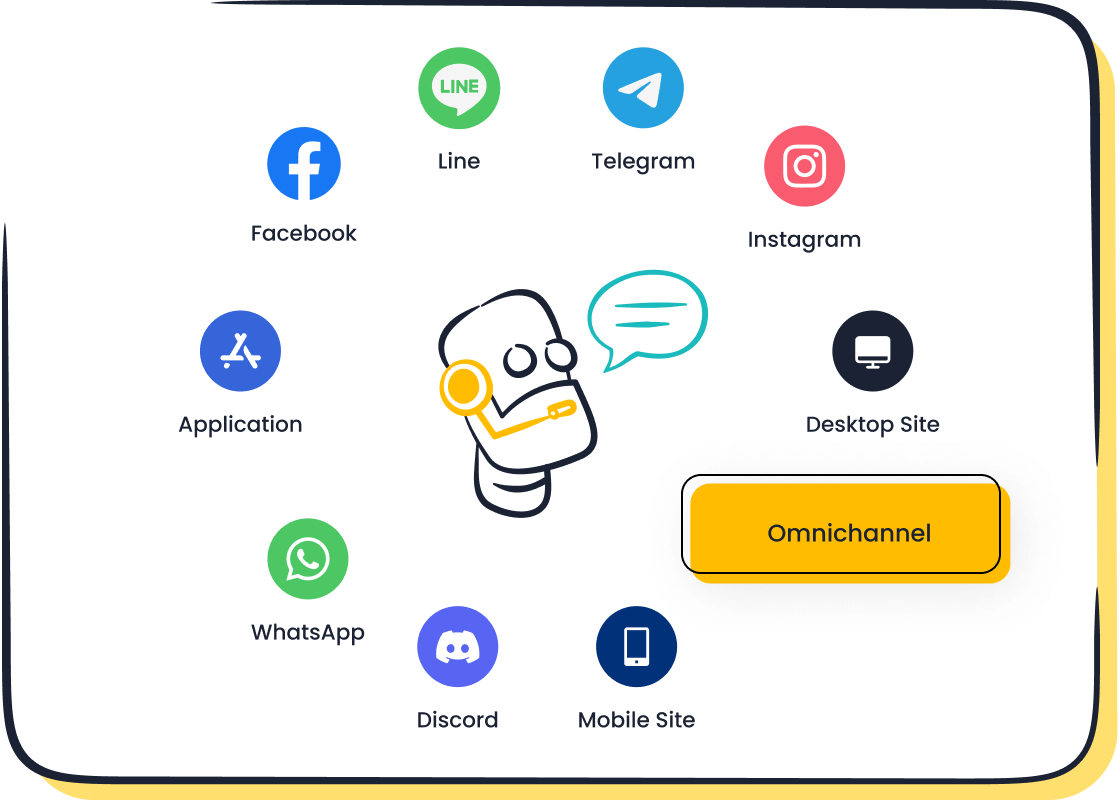
Sobot’s AI Chatbot is a perfect example of this revolution. It combines omnichannel support with AI-driven personalization to deliver tailored assistance. Whether you’re shopping online or troubleshooting a product, it ensures your journey feels effortless and engaging.
| Metric | Improvement (%) | Description |
|---|---|---|
| Interactions through WhatsApp | 2,350 | Significant increase in customer interactions via WhatsApp from 2019 to 2021. |
| New customer adoption | 1,590 | Marked rise in the number of new customers adopting the service during the same period. |
| Problem-solving rate | 19 | Improvement in the rate of problems solved by the chatbot, indicating enhanced service efficiency. |
Scenarios Where Chatbots Could Harm Customer Experience
While chatbots can be game-changers, they’re not without flaws. Have you ever tried explaining an issue to a chatbot, only to feel like it wasn’t listening? That frustration is real. Customers often complain when chatbots can’t handle images or fail to provide specific answers. Comments like, “I was counting on you to help me,” highlight the disappointment when expectations aren’t met.
In some cases, chatbots misunderstand questions or give incorrect information. This leads to stress and dissatisfaction, with users saying things like, “You’re a very pathetic robot.” Repeated failures can make you feel like your time has been wasted. For example, a customer might say, “I just needed to know the available sizes. This was a waste of my time.”
To avoid these pitfalls, businesses need to ensure their chatbots are well-trained and capable of handling diverse queries. Sobot’s AI Chatbot addresses these challenges by offering customizable workflows and real-time intent recognition, minimizing errors and improving effectiveness.
The Role of Businesses in Mitigating Risks
Businesses play a crucial role in ensuring chatbots enhance, rather than harm, your experience. They must prioritize security to protect your data. Robust measures like encryption and real-time data redaction can prevent breaches. Companies also need to train their staff to avoid sharing sensitive information during chatbot interactions.
Here’s how businesses can mitigate risks:
- Implement robust security measures to protect against data breaches.
- Source chatbot training datasets from reputable sources.
- Conduct regular security audits to ensure compliance with regulations.
- Use real-time data redaction to mask sensitive information before it’s logged.
- Train staff to avoid sharing sensitive data during interactions.
- Implement strict access controls and encryption for log management.
Sobot takes these steps seriously. Its AI solutions prioritize data privacy and compliance, ensuring your information stays secure while delivering personalized assistance. This commitment builds trust and enhances customer satisfaction.
Striking the Right Balance Between Automation and Humanity
Automation is powerful, but it’s not a one-size-fits-all solution. You still value the human touch, especially when dealing with complex or emotional issues. A study on AI in digital marketing found that while automation boosts productivity, it also raises concerns about quality and the need for human oversight.
The key is balance. Businesses must combine automated customer service with human interaction to maintain a personal connection. For example, Sobot integrates chatbots with live agents, ensuring you get the best of both worlds. Chatbots handle routine tasks efficiently, while human agents step in for more nuanced situations.
This approach doesn’t just improve efficiency—it also enhances customer retention. When you feel heard and valued, you’re more likely to stay loyal to a brand. By 2025, businesses that strike this balance will lead the way in customer engagement and satisfaction.
Chatbots are reshaping customer service, offering both opportunities and challenges. By 2025, they could handle 95% of interactions, saving businesses up to 2.5 billion hours annually (Juniper Research). Yet, 75% of customers still value empathy and authenticity in their experiences.
To succeed, businesses must combine automation with human interaction. Sobot’s AI Chatbot exemplifies this balance, delivering instant support while ensuring complex issues reach human agents. This approach builds trust, enhances satisfaction, and keeps customer service personal.
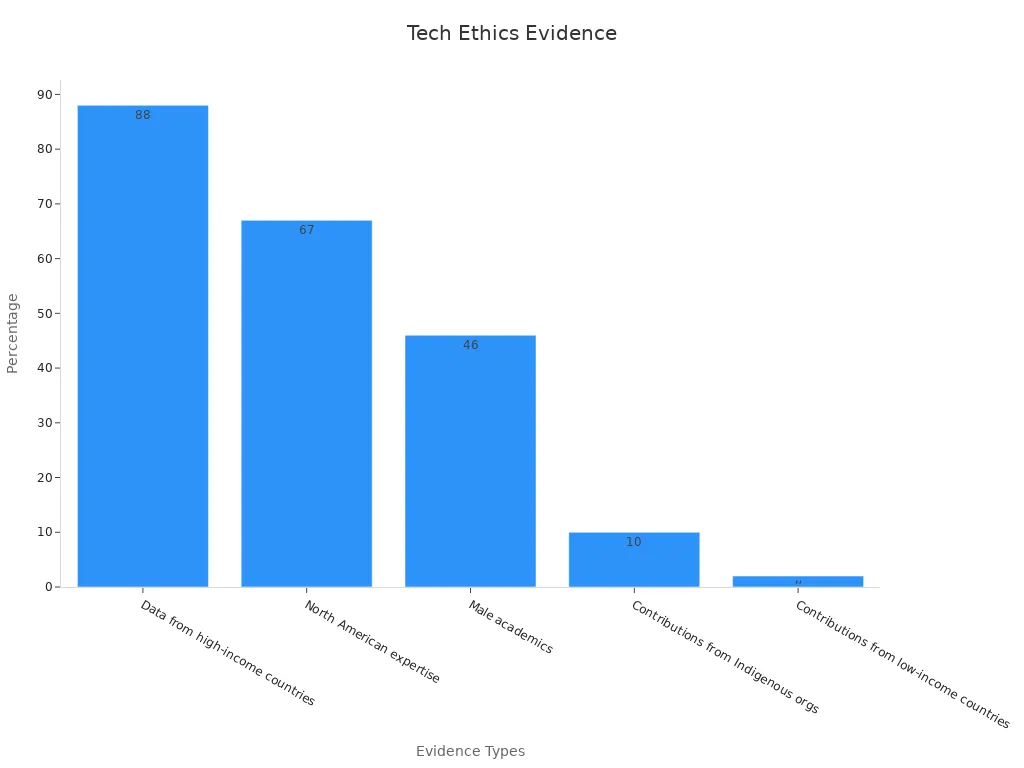
By prioritizing ethical AI and seamless integration, companies can revolutionize customer service while addressing its risks. The future lies in striking the right balance—where technology enhances, not replaces, the human touch.
FAQ
1. How do chatbots improve customer service efficiency?
Chatbots handle repetitive queries 24/7, reducing agent workload by 70%. Sobot’s AI Chatbot even boosts productivity and cuts service costs by up to 50%.
2. Can chatbots handle complex customer issues?
Chatbots excel at simple tasks but struggle with nuanced problems. Sobot’s AI Chatbot bridges this gap using AI copilots and a robust knowledge base for better support.
3. Are chatbots secure for sharing personal information?
Yes, if implemented correctly. Sobot prioritizes data privacy with encryption and GDPR compliance, ensuring your personal information stays safe during chatbot interactions.
See Also
Enhancing Customer Satisfaction Through Chatbots in E-commerce
2024's Leading Websites Implementing Chatbot Technology
The Best Chatbots for Websites to Use in 2024
